Sometimes you may be asked to show proof of your U.S. citizenship, such as when you apply for a job or obtain immigration benefits for a family member. The following official documents can all be used to prove your citizenship, but which one(s) to choose depends on your circumstances and how you acquired your citizenship.
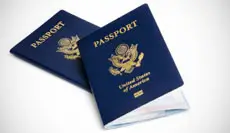
A passport is usually the best evidence of your citizenship. It is accepted virtually everywhere when proof of citizenship is required. If you don't already have one, you can apply for a passport as soon as you become a citizen, regardless of how you acquired your citizenship. You do have to prove your citizenship when applying for your first U.S. passport (using one of the documents mentioned below), but once you have it, you should be able to rely on it for most occasions in the future.
Applying for a U.S. passport is fairly easy too. It is also inexpensive compared to other immigration-related applications. As of May, 2002 a regular passport costs $135, and takes 4 - 6 weeks. Expedited processing and other special services cost extra. First time applicants must apply at a Passport Agency, designated Acceptance Facility such as a Post Office, a U.S. Embassy or Consulate. Renewal applications may be sent by mail. Some restrictions apply to minor applicants (under the age of 16).
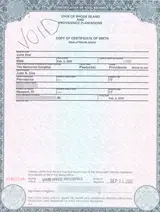
If you were born in the United State, you became a U.S. citizen by birth, regardless of your parents' immigration status. Your birth certificate itself provides proof of citizenship. Since a birth certificate doesn't have a photo on it, you often will be asked to present a government-issued photo ID to prove that you are the person on the certificate.
Hospitals in the U.S. make arrangements to obtain initial birth certificates for new-born's. Many parents request more than one copy at this time for future use. If you later need more birth certificates, you can contact the Division of Vital Records of the State in which you were born. The CDC (Centers for Disease Control and Prevention) Website has an excellent resource page that lists all States' contact information for vital records.
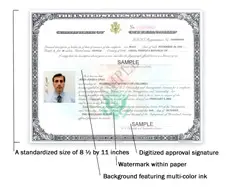
A person born outside the United States to a U.S. citizen parent may be a U.S. citizen if a few requirements are met. It depends on whether one or both parents were U.S. citizens when the child was born, how long they have lived in the U.S., the law in effect at time of birth, and so on. The Department of State website has more information on this subject, which is beyond the scope of this article. If you do meet all the requirements, you may apply for a Certificate of Citizenship to claim your U.S. citizenship and also to use as future proof. You can do so by filing Form N-600, Application for Certificate of Citizenship, with USCIS. An alternative option is to obtain a Consular Report of Birth Abroad, discussed in 3b below.
Other than acquiring citizenship at birth, you could also derive citizenship (after birth) through a U.S. citizen parent. Form N-600 may also be used in this situation to obtain a certificate and claim your citizenship.
Form N-600K, Application for Citizenship and Issuance of Certificate Under Section 322, is another form to claim citizenship for a minor child who regularly lives outside the United States.
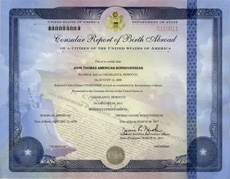
A Consular Report of Birth Abroad (CRBA), or FS-240, is an official document issued by a U.S. embassy or consulate to record the birth of a child abroad to U.S. citizen parent(s). The report is another form of proof of the child's U.S. citizenship, and is equally acceptable just like the Certificate of Citizenship issued by USCIS.
A CRBA can only be generated at an American consular office overseas while the child is under age 18. Once it is recorded, however, the CRBA may be replaced or amended at any time.
The Department of State used to issue Certifications of Report of Birth (DS-1350), but no longer does so as of December 31, 2010. All previously issued DS-1350s remain valid for proof of citizenship. If you need more copies, you should request FS-240 instead.
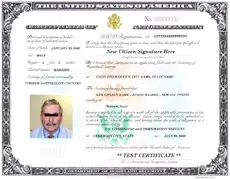
A Naturalization Certificate (Form N-550) is issued to a person who becomes a U.S. citizen through naturalization. Most immigrants become citizens by filing Form N-400, Application for Naturalization. Once the application is approved and the Oath of Allegiance is taken, the applicant will receive a Certificate of Naturalization as proof of his/her U.S. citizenship.
The Certificate of Naturalization and the Certificate of Citizenship are two different documents. Although both can be used as evidence of citizenship, they are issued to different groups of people and should not be confused with each other.